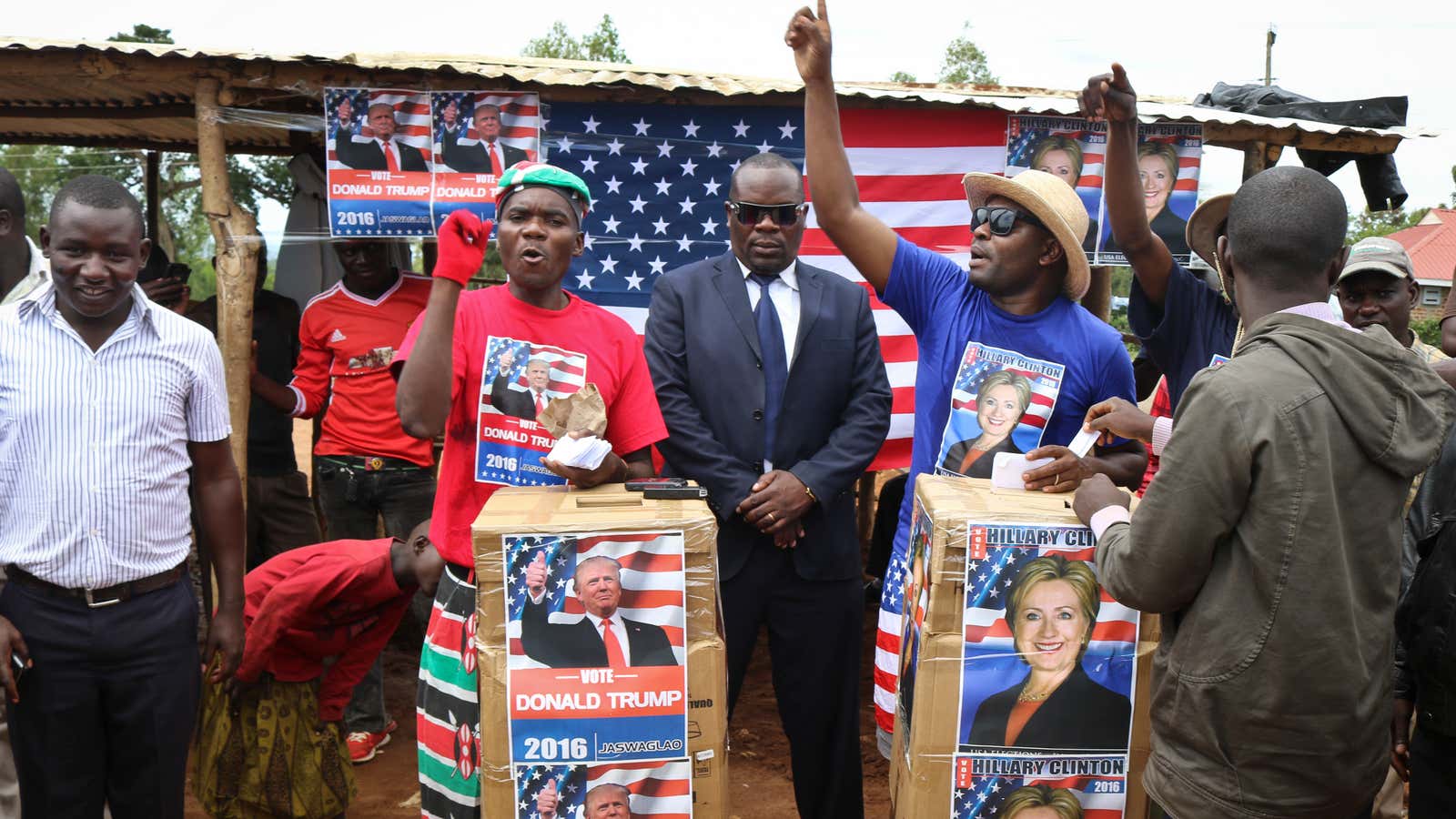Johannesburg, South Africa
It started off as a joke. Comparing Donald Trump, with his campaign of divisiveness, accusations against the democratic system, and vengeful score keeping against his critics, to an African dictator was meant to demonstrate the absurdity of his candidacy.
Now, he is the president-elect of the United States, leaving much of the world reeling in disbelief. Tweets under the hashtag #Nov8AfricanEdition are no longer quite so funny.
“From jokes to actually becoming the president. We don’t understand how he won,” says Wesley Bios, 20, a student at the University of the Witwatersrand in Johannesburg, South Africa.
In Africa, Trump’s win is especially jarring and sets a worrying example in countries where the American political system has long been held up as a paragon of democracy.
“It’s what we never imagined,” says Timothy Maunjiri, 34, a teacher from Malawi working in South Africa. “We expect a lot from [the US]. We expect leaders in the free world to set the pace. We hold the morals in America in high esteem.”
It’s no wonder that today many of the continent’s more questionable leaders rushed to congratulate an American president after their own heart.
They include John Magufuli, who has begun jailing Tanzanians for criticizing him on social media, Kenya’s president and vice president, Uhuru Kenyatta and William Ruto, who have both faced charges of crimes against humanity, Paul Kagame who is changing Rwanda’s constitution to give himself another term, Yoweri Museveni, who has been in office for the last 30 years, and more.
“Trump is tribal. He is no democrat. He promises authoritarian leadership,” writes John Stremlau, a visiting professor of international relations at the University of the Witwatersrand in South Africa.
“Lately African commitments to democratic governance, nationally and regionally, appear to be faltering,” he wrote in the editorial before the election’s outcome. “Africa’s democrats therefore have a special stake in the outcome of the US election.”
Africa’s democrats will have a tougher fight in debates over measures like the African Union’s proposal for a charter that commits all 54 members to credible elections observed by the AU.
America’s appeal has dimmed. For Neo Chiloane, 21, also a student at the University of the Witwatersrand, says he won’t be visiting the US anytime soon. Trump’s win, police shootings of black men and the subsequent protests show a country in decline.
“It’s a first-world country. We expect better,” Chiloane says. “America has better education but even we in South Africa are smart enough to see who the right candidate is.”
Others are bleak, worried about the impact that a Trump administration will have on trade, financial assistance, and diplomatic ties with their countries.
“It’s just unbelievable. I’m so anxious to see how it turns out. I just pray that Trump’s presidency won’t affect our economy because from what I know the US controls the world economy,” says David Otieno. Another Kenyan man that would only give his first name as Carlos Onyie, added. “There’s nothing to say—just God help us all.”
Others on the African continent, familiar with the feeling of uncertainty and powerlessness during unstable political times, advise despairing Americans to hang on.
“Take heart. Things happen. We must take it upon ourselves to go and vote,” says Maunjiri.
